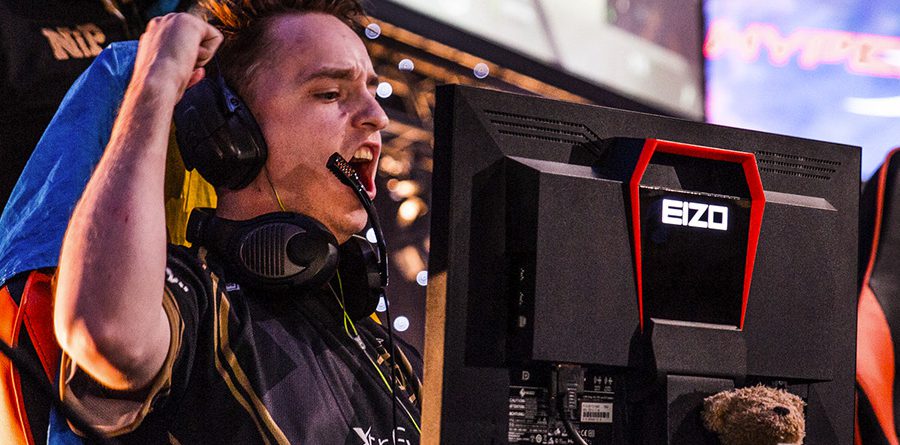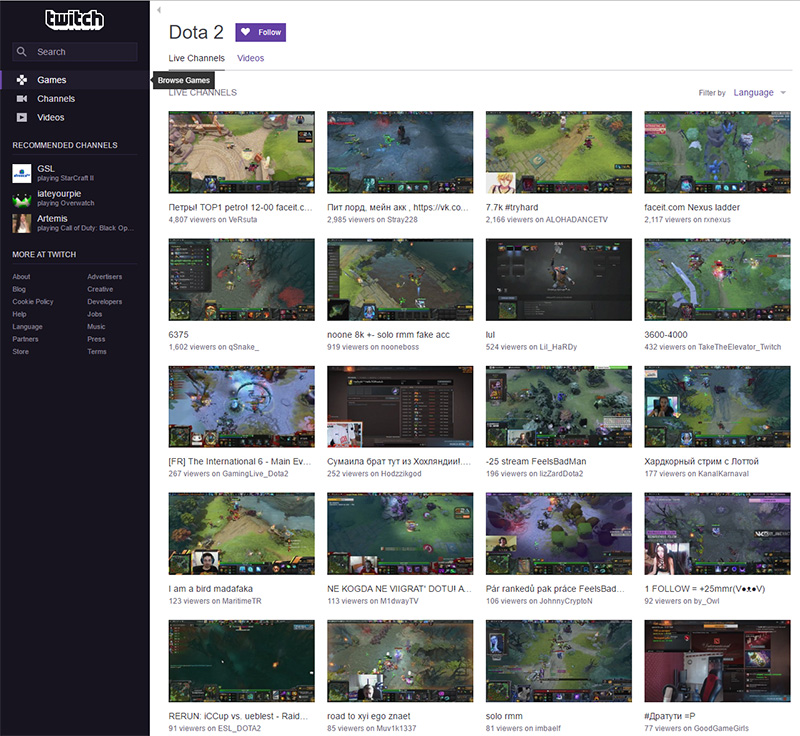Til date, most of society still see fanatical gamers in a negative light. Parents continue to frown upon their kids who spend significant hours playing video games, dubbing that as a ‘waste of time’. But is it really?
The rise of professional gaming, or electronic sports (esports), is something many did not see coming. In Aug 2015, the game developer Valve held their annual DOTA 2 tournament (The International 2015) – the total prize pool for this video game tournament was a mind-boggling USD 18.4 million.
The popularity of esports is also reflected by Amazon’s $970 million buyout of Twitch, a platform where esports tournaments are streamed live. Seen as a ‘YouTube for gamers’, gamers can also livestream their in-game adventures and earn a living from playing advertisements and selling viewers subscription packages.
Many fanatical gamers (and their concerned loved ones) have been wondering if one can really make a career out of playing video games. In this piece, I take a look at the realities of being a professional gamer, and whether it is indeed a viable career option.
Common Misconception
With the staggering increase in tournament prize money, it is easy to have the common misconception that one can very easily become rich playing video games – for instance, you might have seen various mainstream media reports on how 16-year-old Sumail Hassan won a total of $1,639,867 after his team (Evil Geniuses) emerged as champions for The International 2015 (read full piece). Such astronomical earnings in a single year might be beyond most people’s reach in a lifetime.
However, what many do not realise is that there exists survivorship bias amongst media reports. Most people only see the success cases – stories about gamers making millions in a year (e.g. BBC reported PewDiePie made $7 million in 2014 streaming video games, see article) – but they do not realise how many gamers have actually tried and failed doing so.
In finance and business there is a term known as ‘risk-adjusted returns’. To put it simply, one should not merely look at the highest possible returns as the expected value of a decision – this has to be adjusted by the probability of the scenario occuring.
In the following section, I present a case for the risk-adjusted annual salary a competitive-gamer can potentially earn.
Behind the Numbers: Case Study of DOTA 2

Scenes from The International (DOTA 2 annual tournament)
DOTA 2 is arguably the video game right now with the most lucrative esports scene with 4 major tournaments every calendar year at this point of writing. These 4 tournaments are the only tournaments that runs on an open qualifier format (i.e. anyone could stake a claim on the championship prize money, as opposed to other tournaments that run on an invite-only format). The tournaments outside of the four majors offer vastly smaller prize money that pale in comparison.
Prize Money for Team of 5, Coming in First Place for the 4 Majors:
- The International 2015: $6,634,661
- Frankfurt Major 2015: $1,110,000
- Shanghai Major 2016: $1,110,000
- Manila Major 2016: $1,110,000
Assuming a winning team of 5 players comes in first for all four majors over the span of a year, their total earnings for the year will amount to $9,964,661. This sounds like a lot of money, but before you tell your parents you would like to quit school or your day job to be a professional gamer you should take a harder look at the numbers on a risk-adjusted basis.
The Competition You Face
For all the 4 majors, there are a total of 1,024 teams of five that can register for the open qualifiers on a first-come-first-serve basis for each geographical region – South East Asia, Europe, Americas and China. On top of that, each tournament will have direct invites for around 8 teams of five that have shown strong recent performances as a team. This implies you would be one of the participants out of a total of 20,520 competitors globally ( 4 * 1,024 * 5 + 8 * 5).
For the purpose of this article we shall assume that everyone has an equal chance of coming in first place, though in reality your probability of emerging as the champion is a lot lower. Ask anyone who has been following the competitive DOTA 2 scene and they would tell you that the invited teams tend to be the favourites to win the tournament. As someone who is trying to break into the scence from scratch, your chances of winning are significantly hampered by the factors below:
- Team Dynamics: DOTA 2 is a team 5-versus-5 game. Your chances of winning the championship are directly influenced by the average level of skill and actual performance of your four team members during the tournament. You can be the absolute best player in the world, but should your other team members happen to be error-prone during the actual matches, it is less likely that you have what it takes to compensate for their underperformance. Forming a team with four other members introduces alot of variance to your expected results from the tournament, not to mention potential social conflicts due to disharmony amongst the team.
- Breaking into the Scene: Have a read about how the top DOTA 2 teams are formed. You will notice that the very best teams tend to comprise extremely seasoned players who have been in the scene for multiple years. Assuming you are starting from scratch, even if you an innately talented DOTA 2 player, you probability require some ramp up time to make a name for yourself in the scene, before you can form an optimal team with four other team members of your calibre.
Taken the above factors into account, it would seem conservative to assume that you actually have an equal chance amongst all the 20,520 aspiring professional gamers for the four major tournaments – but let’s proceed with this assumption for purposes of this analysis.
Risk-Adjusted Returns
Your risk adjusted returns of being a professional DOTA 2 gamer will essentially be = (1 / 20,520) * $9,964,661 = $485.61 per annum. Just to put this into perspective, the average salary for US college graduates amounts to $50,556 per annum (source). While the annual salary from a stable-paying graduate job might seem insignificant compared to the potential millions one can make from being the best at DOTA 2, it is arguably a strong choice on a risk-adjusted basis.
Streaming Video Games for a Living is Very Competitive
One might make an argument that whilst $485.61 per annum of risk-adjusted return from tournaments seem mediocre, you can always find other sources of revenue to augment your income as a professional gamer.
Indeed, many professional gamers supplement their income by streaming themselves playing video games on Twitch. As highlighted at the start of the article, top video game streamers like PewDiePie makes $7 million in a year from streaming revenue (playing advertisements and paid subscribers etc.).
However, the reality is that there are tons of streamers out there who are trying to be the next PewDiePie. Unless you have already made a name for yourself online, it is tough to gather sufficient viewers for you to supplement your income in a significant way.
Below is a quick screenshot of the DOTA 2 page on Twitch – as you can see, viewership is congregated amongst a handful of channels (of which the streamers have some form of online fame). This is perfectly logical. Why would anyone watch someone unknown to them play video games? How would you be any different from streamers who are garnering one or even zero viewers at the bottom of the list?
Compromising on Education
Forgoing quality higher education is likely to be one’s opportunity cost for pursuing a possible career in professional gaming. In a famous blog post written by Jacky “EternaLEnVy” Mao on the liquiddota.com forums (source), he announced his decision to dropout of college to pursue a full-time career in DOTA 2. The move ended up working well for him – according to esportsearnings.com, he earned a total of $737,095.88 from DOTA 2 tournaments over a span of 5 years (averaging $147,419 per annum).
However, EternalEnvy’s success is an exception rather than the rule – as discussed earlier, there are many others that have tried and failed doing so. We can likely assume that many individuals like him, have given up a possible college degree, spending many years trying to succeed in esports, only to give up on that dream eventually.
There are two factors to consider regarding a decision like this:
- Could you return to college to complete your degree, should your attempt at an esports career fail?
- Even if you could eventually return to college to graduate with a degree, what is the opportunity cost of the years spent trying to be a professional gamer?
No Game Lasts Forever
The other point of consideration would be the lifespan of the video game you are trying to be a professional gamer in. Over the course of video games history, we have seen many game titles come and go as the most popular (hence financially rewarding) video games in the esports scene. We have seen the rise and fall of Quake, Counterstrike 1.6, Warcraft III and Starcraft II just to name a few.
The risk of being a professional gamer is also tied to the uncertainty surrounding a game’s future. In EternaLEnVy’s case, there is no guarantee that DOTA 2 will continue to garner such viewership and prize money in 10 or 20 years’ time, as new gaming titles surface. One might argue that EternaLEnVy can simply switch to another video game title when that time comes, but there is no guarantee he can replicate his success in a different game.
Conversely, if you have spent 5 years as an accountant in one of the Big 4 audit firms upon graduating from college, whilst there is no guarantee of success should you switch to another audit firm, your chances of success is probably higher in comparison to EternaLEnVy’s attempt to switch to a new competitive game.
A Possible Career Option, But Be Wary of the Risks
I am personally a big fan of esports and I follow the competitive gaming scene just like how I follow professional soccer leagues. The purpose of this article is not to dissuade individuals from pursuing their dreams of being a professional gamer – it merely seeks to highlight the realities of attempting to become a professional gamer.
Given the above, if you are still set on being a professional gamer, how should you approach the challenge?
Reassess Before Committing Full-Time
It should be clear to you now that a professional esports career is viable, if you are one of the best at the game globally. It might be wise to commit to a video game part-time initially, whilst managing your other priorities in life (e.g. a day-job or education). Doing so allows you to better assess your probability of rising to the top. For instance, if you find yourself climbing competitive online ladders at a faster than average pace, there is a higher chance of you being the best in the game if you commit full-time. Make the leap to become a professional gamer only when you have some conviction of your success.
Games will Phase Out, Future-Proof Yourself
Consider Johnathan Wendel (more famously known by his gaming tag Fatal1ty). He is a former professional Quake player that understood the importance of planning ahead. After his illustrious career as a Quake player (in part due to Quake being phased out as a popular game), he founded Fatality Inc., a video game accessories company. The company went on to partner tech heavyweights like OCZ Technology and Creative Labs to create motherboards, sound cards, gaming desks, computer mice, headphones, and power supplies bearing his moniker.
Backup Plan:
For EternaLEnVy, as he pointed out in his initial announcement to drop out of school, he would return to college in a worst case scenario should he fail as a professional gamer after a couple of years. Likewise, you should set a firm time frame for yourself – should your career in esports fail to take off during this time frame, you would cut losses and fallback on something else (be it your original day job, or resuming school).
Given the trajectory of the gaming industry in recent years, the viability of being a professional gamer has definitely increased compare to a decade ago. Be realistic about your chances of succeeding as a professional gamer and I hope to see you at the very top.









